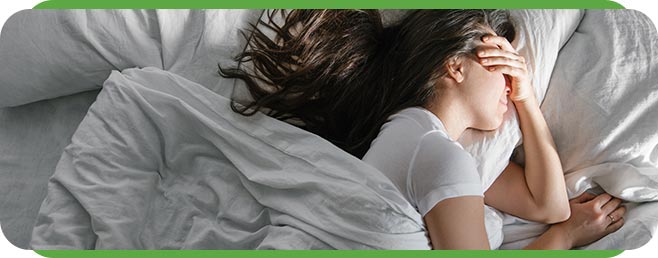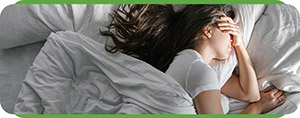Excessive Sleepiness Disorder Treatment Specialist
Excessive sleepiness disorder can happen to anyone. You are not alone. For information, call our dedicated sleep team today at Koala® Center For Sleep & TMJ Disorders or visit us online to book an appointment. We have convenient locations across the U.S. in Bloomington IL, Peoria/Dunlap IL, El Paso TX, and Wausau WI.


Table of Content:
What illness causes excessive sleeping?
Is hypersomnia a mental illness?
When should I be concerned about excessive sleepiness?
How can I stop being sleepy?
Excessive sleeping or daytime drowsiness (hypersomnia) can be caused by many conditions, as numerous changes in the body can easily influence sleep. Hypersomnia is generally separated into two groups of disorders: primary, a result of problems in brain functioning, and secondary, the result of conditions causing fatigue. Narcolepsy is the most common kind of primary hypersomnia, though most cases of hypersomnia are secondary. For example, brain infections and encephalitis (inflammation of the brain) may cause drowsiness.
Tumors, head trauma, central nervous system (CNS) diseases, and other brain health conditions will likely cause sleeping issues as well. Neurodegenerative diseases like multiple sclerosis (MS) and Parkinson’s have been shown to affect the brain, including sleep regulation. Epilepsy, a seizure disorder, also causes patients to be excessively sleepy as seizures deplete the body’s resources and interrupt proper brain functioning. Undoubtedly, sleep-related disorders such as obstructive sleep apnea and delayed sleep phase syndrome, a circadian rhythm dysregulation, will cause daytime drowsiness and excessive sleeping.
Mental health disorders like depression, anxiety, bipolar, and schizophrenia may cause people to sleep for more extended periods or find it more difficulty staying awake throughout the daytime. Further, hyperthyroidism, atrophy (muscle wasting), and myotonic dystrophy (genetically caused muscle wasting) can cause excessive sleepiness. Besides health conditions, certain medications are also likely to cause drowsiness.
Sedatives, such as benzodiazepines, are an obvious culprit, though antipsychotics, like chlorpromazine (Thorazine), and medications treating depression and other psychiatric conditions may also be the root. Antihypertensive medications and antiepileptic medications have this common side effect too. Lastly, alcohol, opiates, and use may make you feel more tired.
No, hypersomnia is not a mental illness. Mental illnesses are conditions that affect emotions, behavior, and mindfulness. Hypersomnia is characterized as a sleep disorder in which symptoms disrupt sleep cycles.
Hypersomnia may be confused with mental disorders as the symptomatic experience of excessive drowsiness and prolonged periods of sleep are commonly seen in patients with psychiatric disorders like major depressive disorder (MDD), general anxiety disorder (GAD), social anxiety, as well as bipolar disorder, schizophrenia, post-traumatic stress disorder (PTSD), and more.
Excessive sleepiness can be aroused by numerous factors in daily life and can be a short-term change. In the case of extreme stress or disturbed sleep cycles, removing the stressor will resolve sleepiness. For example, if you are experiencing a lot of stress at work and you see an increase in nightmares and daytime sleepiness, your experience will likely dissipate as your work stress does.
Make lifestyle changes and try medications without seeing any improvement. It may be worth mentioning to your primary health care provider to determine if there is an underlying condition causing your symptoms. Generally, you would want to see a doctor if your symptoms last longer than three months or if your symptoms are debilitating and disallowing activities for daily living, such as showering or eating.
Hypersomnia may be a temporary reaction to stressors in your waking life. If that is the case, removing stressors from your life will help resolve the issue. In addition, if lifestyle habits cause your sleepiness, you should practice healthier habits. For instance, if you use alcohol or recreational drugs regularly, this may be the root of your excessive drowsiness, and a reduction of intake should help. Further, if you are a “night owl” and do not sleep until the early morning hours, adjusting your sleeping schedule will align your circadian rhythm and reduce sleepiness.
The circadian rhythm is the biological clock, controlling the release of various neurochemicals called hormones that cause us to feel tired or alert. Typically, the circadian rhythm makes us feel sleepy when the sun is down and does the opposite when the sun rises. If your sleepiness is not helped with lifestyle changes, it would be beneficial to contact a physician.
A doctor may be able to diagnose and treat your condition based on a patient interview and exam, or they may order sleep studies to be conducted to determine an underlying cause, like obstructive sleep apnea (OSA). Once a condition is identified, your doctor can curate a treatment plan that may include medication, oral appliances, CPAP or Bi-PAP machines, or surgical treatments.
If you’re struggling with chronic snoring, daytime exhaustion, or the frustration of a CPAP machine you can’t tolerate, it’s time to talk to our specialists at the Koala® Center For Sleep & TMG Disorders. We are experts in diagnosing and treating the root causes of sleep-disordered breathing. We will listen to your concerns and provide you with a personalized path to recovery, including our comfortable, custom-fit Oral Appliance Therapy (OAT). Let us help you finally achieve the deep, quiet, and restorative sleep you deserve.
Koala® Center For Sleep & TMJ Disorders is here to help you with your concerns about drowsiness. To speak with a member of our dedicated sleep team, please do not hesitate to book an appointment or call us today. We look forward to meeting and serving you.

Additional Services You May Need
▸ KoalaKIDZzz®
▸ Sleep Apnea
▸ Snoring
▸ TMJ Disorder
▸ Fatigue
▸ Sleep Disorders
▸ Weight Loss
▸ CPAP Alternative
▸ Oral Appliances




